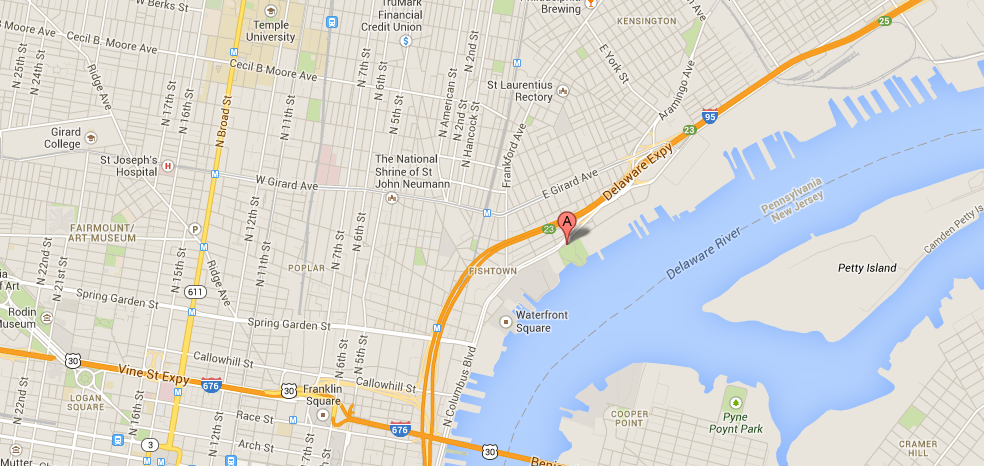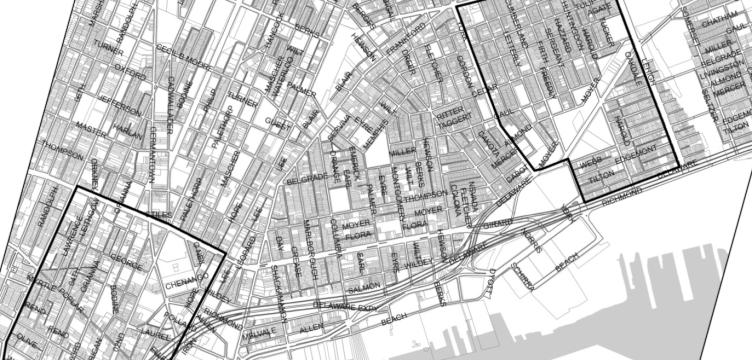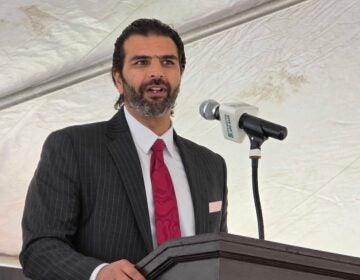Bill that would lift nightclub ban to be amended

A bill that would lift a ban on nightclubs and other places of assembly near the Delaware River in Northern Liberties, Fishtown, Kensington and Port Richmond will be amended so that the nightclub prohibition remains across the entire area.
City planners have been discussing the bill introduced this summer by First District Councilman Mark Squilla with representatives of those communities, who feared the change would bring back the problems their neighborhoods had with such establishments back in the 1980s and ’90s, said Natalie Shieh, Deputy Chief of Staff in the Office of the Deputy Mayor for Economic Development. She’s been working on the bill.
“I have asked (planning) to reach out to the community groups to try and get a consensus on a plan,” Squilla said in an email Thursday night.
The zoning fate for future restaurants and bars remains unclear, Shieh said. Until new language is drafted, the bill is on hold, she said – no hearing will be scheduled.
The existing Neighborhood Commercial Area overlay’s boundaries are The Delaware River, Spring Garden Street, 5th Street, Girard Avenue, Frankford Avenue and Lehigh Avenue. Before the new zoning code was passed, nightclubs and other places of assembly, bars and restaurants could not be opened or existing ones expanded within those boundaries without a zoning variance. The new code changed the rules so that bars and restaurants could expand or open by special exception. (The difference: The party seeking a variance must prove a hardship without one. Under special exception, the burden of proof rests with the community, which must show the granting of the exception would cause harm beyond which is normally expected with that type of use.)
As it stands, Squilla’s bill would reduce the overlay area by more than half, leaving it to apply in two, much-smaller areas: One bounded by Spring Garden Street, Front Street, 5th Street, and Girard Avenue, the other by the west side of Delaware Avenue, Lehigh Avenue, Trenton Avenue, York Street, Aramingo Avenue, and Cumberland Street. It would also repeal a requirement that developments within the district provide more parking than a similar development elsewhere in the city.
The ban on new or expanded nightclubs, unless a variance is granted, will remain over the entire original boundaries of the bill, Shieh said, and so will the parking change. The parking reduction matches up with the city’s Master Plan for the Central Delaware, which wants to shift focus away from cars and more on walking, biking and public transit, Shieh said.
But discussions are still on-going regarding bars and restaurants without assembly. “Some neighborhoods feel that should be allowed by right,” she said. But others remain concerned that what starts as a bar or restaurant today could morph into a nightclub tomorrow, as has happened in the past.
The area most interested in by-right bars and restaurants is Fishtown, Shieh said. Fishtown has a growing restaurant scene, and community representatives have said in her meetings with them that a change to by-right status could help support that.
The bill was discussed at a recent meeting of the Central Delaware Advocacy Group, and while some members were concerned about the possible return of nightclub-related problems to the area, most also had concerns about the genesis of the bill.
As reported in this earlier article, Squilla told PlanPhilly his motivation was tied to Michael Samschick’s proposed complex of entertainment venues, a bowling alley, a distillery and more, located at Frankford and Delaware avenues. The project, which won the support of Fishtown Neighbors Association, received variances for use and parking from the zoning board earlier this year, but an appeal by a small group of near-neighbors is pending at the Court of Common Pleas.
“Rezoning by ordinance is something that happens a lot,” said CDAG Chairman Matt Ruben. “It’s not unusual, and zoning by variance is not unusual either. It is unusual to have an ordinance pending to rezone while there’s a pending variance case included in the same area,” he said.
“Basically, the idea of an ordinance to moot the appeal of a variance, as far as we know has never been done before, or attempted before. Speaking only as a member of the community that I’m a delegate from, we have a concern about that as a matter of policy,” said Ruben, who is President of the Northern Liberties Neighbors Association.
“I am concerned about this as a precedent,” said CDAG member Joe Schiavo, who was once on the zoning committee of the now defunct Old City Civic Association. “I am concerned about how it affects due process,” and the rights of property owners and civics,” he said.
“I think this is a big enough precedent for CDAG to weigh in on,” said Phillip Stoltzfus, CDAG member representing the Old Richmond Civic Association.
“Remappings are going on all the time,” Squilla said Thursday. “Zoning changes take place before, during and after developments occur. I do not think it would be a bad precedent if an ordinance was introduced to allow what a community group supported.”
CDAG sent Squilla a letter voicing concerns about both the precedent the legislation would set and concerns that lifting the assembly prohibition would create the “potential for a resurgence of the serious crime and nuisance problems that plagued the North Delaware Avenue corridor in the 1980s and 1990s.”
CDAG’s letter asks that Squilla withdraw or hold the bill indefinitely, and states the group would welcome a chance to discuss its concerns with Squilla and or his staff.
When asked if there were any concerns about the introduction of a bill that could moot a pending zoning appeal, Shieh said planning wasn’t concerned. Changes like those proposed in the bill were among the recommendations of the one-year report of the new zoning code, released in August, and discussions before then.
In other words, she said, planning was looking to make these adjustments before the issues with Samschick’s project and the appeal came up.
Project neighbor Jethro Heiko, who filed the appeal, and his attorney, Paul Boni, spoke to CDAG about the issue. Their comments can be watched and listened to at 19:34 in the video, and at 26:40.
Heiko said he did not live near the proposed project when the overlay was put in place, but he’s talked extensively to his neighbors about what life was like before it existed. “My quality of life … is actually quite good, and quiet, because (of) this legislation,” he said. Prior to it, “people were being shot and killed, and having public sex on public streets. It was not a fun time.”

WHYY is your source for fact-based, in-depth journalism and information. As a nonprofit organization, we rely on financial support from readers like you. Please give today.





